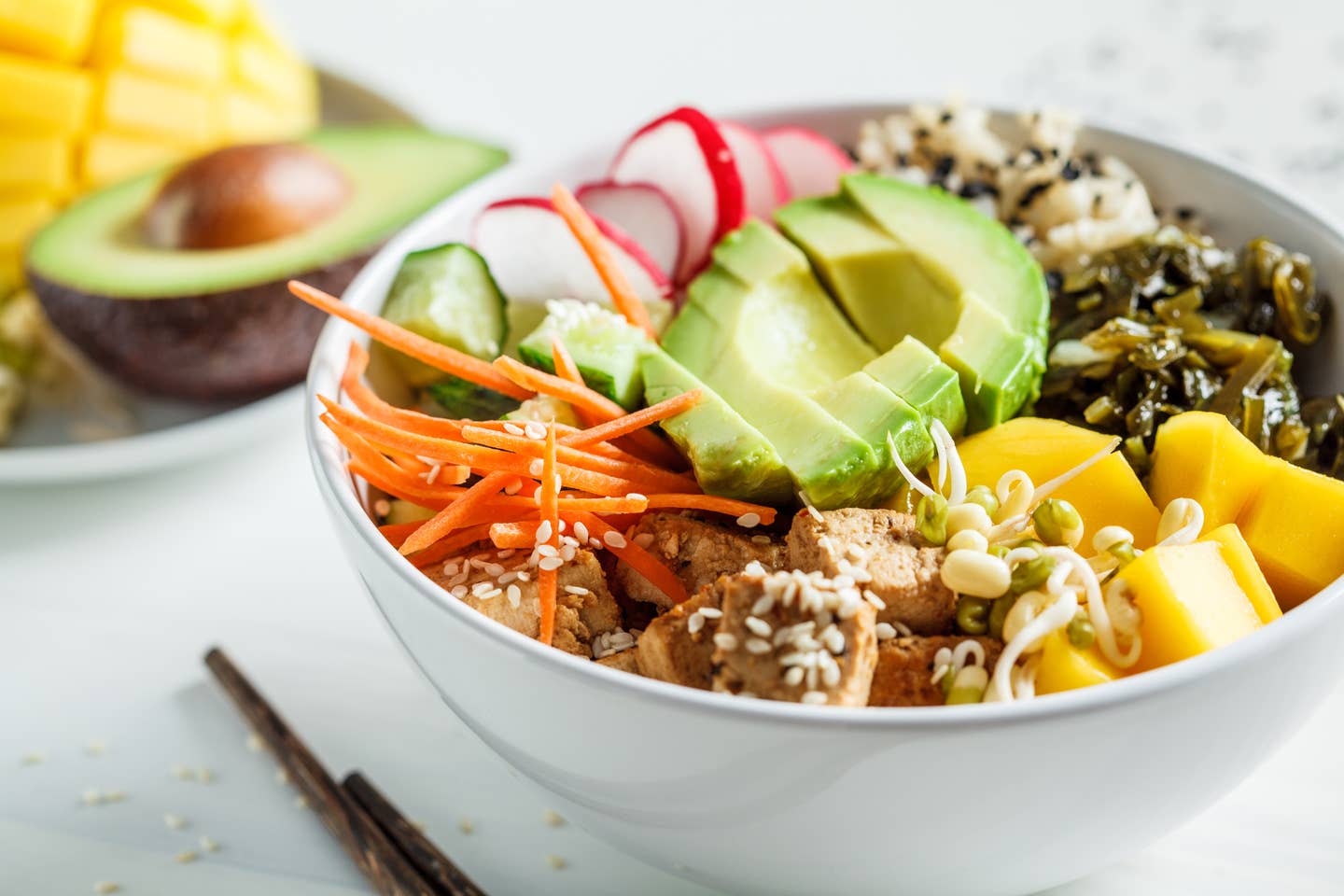
Eat Plant-Based on a Budget: How to Save Money on Vegan Foods
With New Year's Day fast approaching, now is the time to make resolutions that you can keep, to ensure that next year will be better than the one we're putting in the books. Every year we set our sights on new goals and resolve to do better as a way of focusing on what's important. Last year's top resolutions were to improve fitness, lose weight, eat healthier and prioritize our health (makes sense). This year we are also adding to those one major concern: Save money! But how do you eat healthier – and focus on immune-boosting plant-based foods – without spending a fortune?
Fortunately, it is possible to follow a healthy, plant-rich diet – that serves up plenty of immunity-boosting nutrients from fruits and vegetables, healthy whole grains, protein-packed legumes, and beneficial nuts, and seeds – all watching our wallet? It is possible, and we have the tips you need to get it done.
Adopting a more plant-based diet is often wrongly perceived to be expensive as if you have to shop at Whole Foods and spend your "whole paycheck." It's simply not so. if you spend most of your time picking out your ingredients in the produce aisle and don't make a stop at the meat case or the dairy section of the supermarket, you can achieve not only your healthy diet goals but also save money at the same time. Among all the top reasons to eat plant-based, saving money is one of the most legit. The other is for health and the sake of the planet.
Eating more plant-based foods helps fight off disease, studies show, since it helps strengthen your immune system. Research shows following a mostly plant-based diet and skipping meat and full-fat dairy also reduces your risk of heart disease, type 2 diabetes, and certain types of cancer, as well as lowers your risk of high blood pressure, obesity, and death from all causes.
Just How Much Can I Save Shopping Plant-Based?
Switching to a plant-based diet can feel daunting at first, but as more plant-based options become available and dairy and meat continue to experience interruptions in the supply chain, eating vegan or plant-based foods actually become cheaper than choosing animal products, according to researchers at Deakin University’s School of Exercise and Nutrition Sciences, which released a recent study that shopping for a family of four can save $1,260 annually just by switching to plant-based foods.
The study considered all necessary nutrients needed for a balanced diet and found that by focusing meals around vegetables, legumes, and other plant-based foods that provide essential nutrients, you can eat plenty of protein and macronutrients on a plant-based diet and actually save money.
“There is often a perception that eating a healthy diet that is also good for the environment is unachievable, partly because it will cost more,” said Tara Goulding, one of the study’s leading researchers. “This study shows that Australians can be confident that it is more affordable to eat a healthy diet that supports the planet compared to what they might typically eat.”
The Deakin University study highlighted how common misconception that plant-based foods must be more expensive because of the cost of growing, trucking to the store and the fact that they are perishable. Even though a few specific plant-based products may cost more than animal-based products, a balanced plant-based diet costs less overall.
Another report from Oxford University analyzed plant-based cost-effectiveness worldwide and found that across 150 countries, healthier more sustainable food costs less in developed regions. "Eating healthy was to 22 to 34 percent lower in cost in upper-middle-income to high-income countries on average, but at least 18 to 29 percent more expensive in lower-middle-income to low-income countries."
Unfortunately, that is also true in America, where food deserts exist in low-income neighborhoods that have less access to large markets with produce sections that offer choices at decent prices. Sometimes the best option is to buy frozen vegetables and fruit, or even canned (but without added butter, sugar, or sauce).
“We think the fact that vegan, vegetarian, and flexitarian diets can save you a lot of money is going to surprise people,” Oxford University researcher Dr. Marco Springman said. “When scientists like me advocate for healthy and environmentally friendly eating, it’s often said we’re sitting in our ivory towers promoting something financially out of reach for most people. This study shows it’s quite the opposite. These diets could be better for your bank balance as well as for your health and…the planet.”
Veganuary, a movement to encourage eating vegan or plant-based in January, commissioned another story that demonstrated that consumers can save money by shopping for plant-based foods that found that cooking your own vegan meals at home costs approximately 40 percent less than meat-based meals, the report found.
During the early months of the pandemic shopping, sales of plant-based meats and other products soared, and they have stayed strong for the past two years. “The COVID-19 pandemic has sparked a huge increase in people interested in trying a plant-based diet – whether for their health or the health of our planet," said Veganuary US Director Wendy Matthews. “This new study shows that people can protect their health, the planet, and their wallets with a plant-based diet.”
How to Save Money on Food
Buy in bulk
For items like beans that have a long shelf life, go to the area of the store that has them in large bins. You can fill your own bags with nuts and seeds from the larger dispensers at the store which is usually cheaper than the pre-packaged bags. Also this way you can buy more or less of your favorites and only use what you need
Buy frozen
Frozen vegetables contain as many nutrients and antioxidants as fresh, and sometimes even more so since they are flash-frozen when picked and don't lose their freshness in the shipping and shelving time before you get it home. Frozen fruit makes for delicious smoothies and frozen vegetables will ensure you always have healthy options on hand for dinner.
Swap non-dairy products
With current shortages of everything from cream cheese to other animal products, those prices are going up and suddenly it can be less expensive to swap in dairy-free and meat-free products. Nutritionists all have their favorite swaps that they recommend to their clients. Here are 11 easy dairy-free swaps to try today if you want to go plant-based and save money. Instead of eggs, try a tofu scramble, which is high in protein and cheaper than most egg-substitute products.
When perusing the grocery aisles in the new year, it may feel intimidating at first to avoid some familiar products. But several outlets have prepared guides for plant-based first-timers.
Here are Cheap, Vegan and Vegetarian Recipes
The Beet compiled a list of the five most affordable plant-based dinners to cook from recipe developers Broke Bank Vegan. Some of these recipes cost less than $1 a serving.
Vegan Grocery List on a Budget
- bean sprouts
- beans and lentils
- beets
- bread (whole grain)
- broccoli
- Brussels sprouts
- cabbage
- carrots and celery
- cauliflower
- chickpeas
- collard greens
- eggplant
- frozen veggies
- kale and spinach
- non-dairy milk
- oats and whole grains
- onion and garlic
- parsley and cilantro
- pasta (whole grain)
- peanut butter
- peas
- potatoes
- rice and quinoa
- squash
- snap peas
- string beans
- sunflower seeds
- sweet potatoes
- tomato sauce
- tomatoes
Bottom Line: To Save Money in the New Year, Consider a Plant-Based Diet.
When you avoid meat and dairy and focus on eating more plant-based foods that are home cooked and free of saturated fat, you can save money while also helping the environment and boosting your personal health. Eat plant-based for the planet, yourself, and your wallet.
More From The Beet






